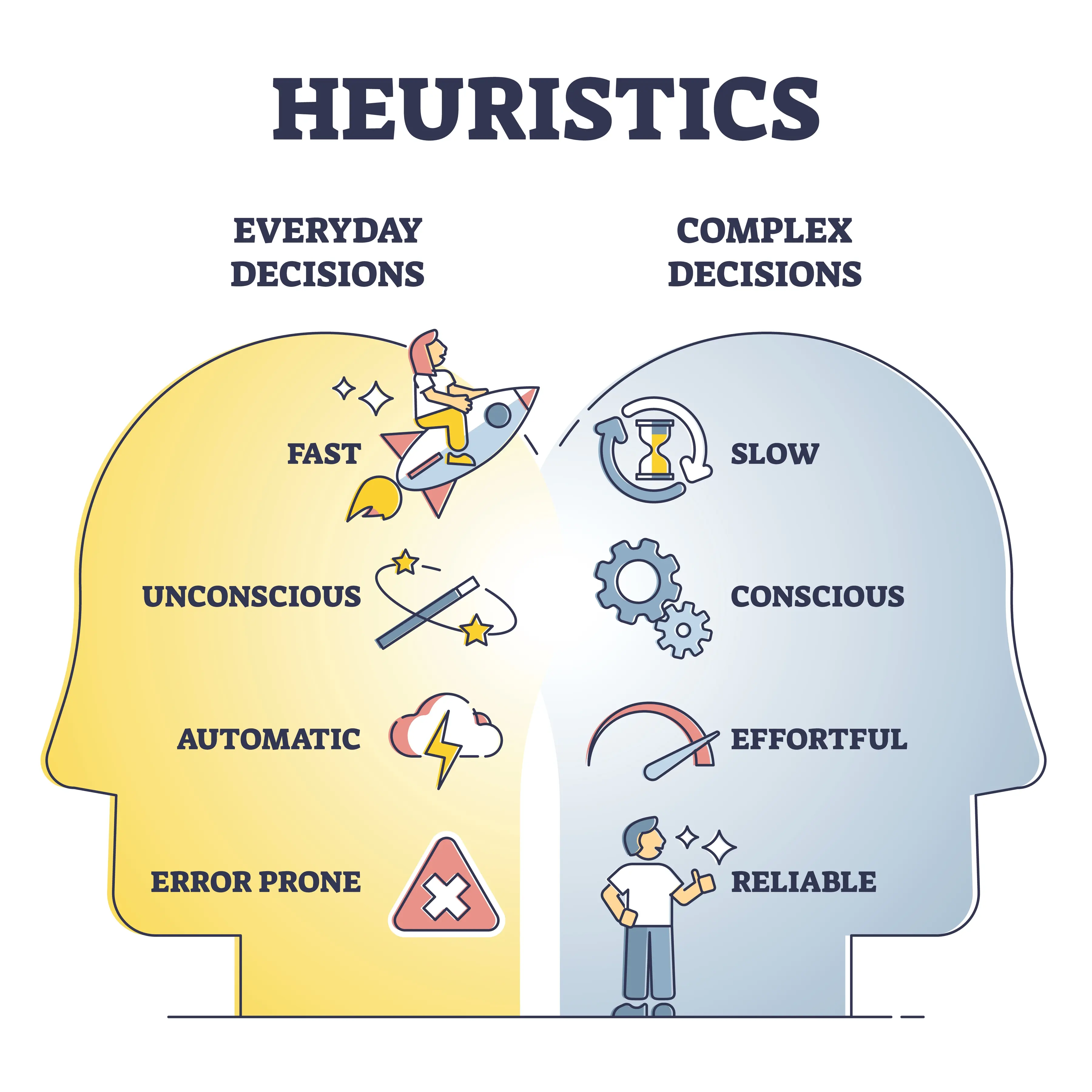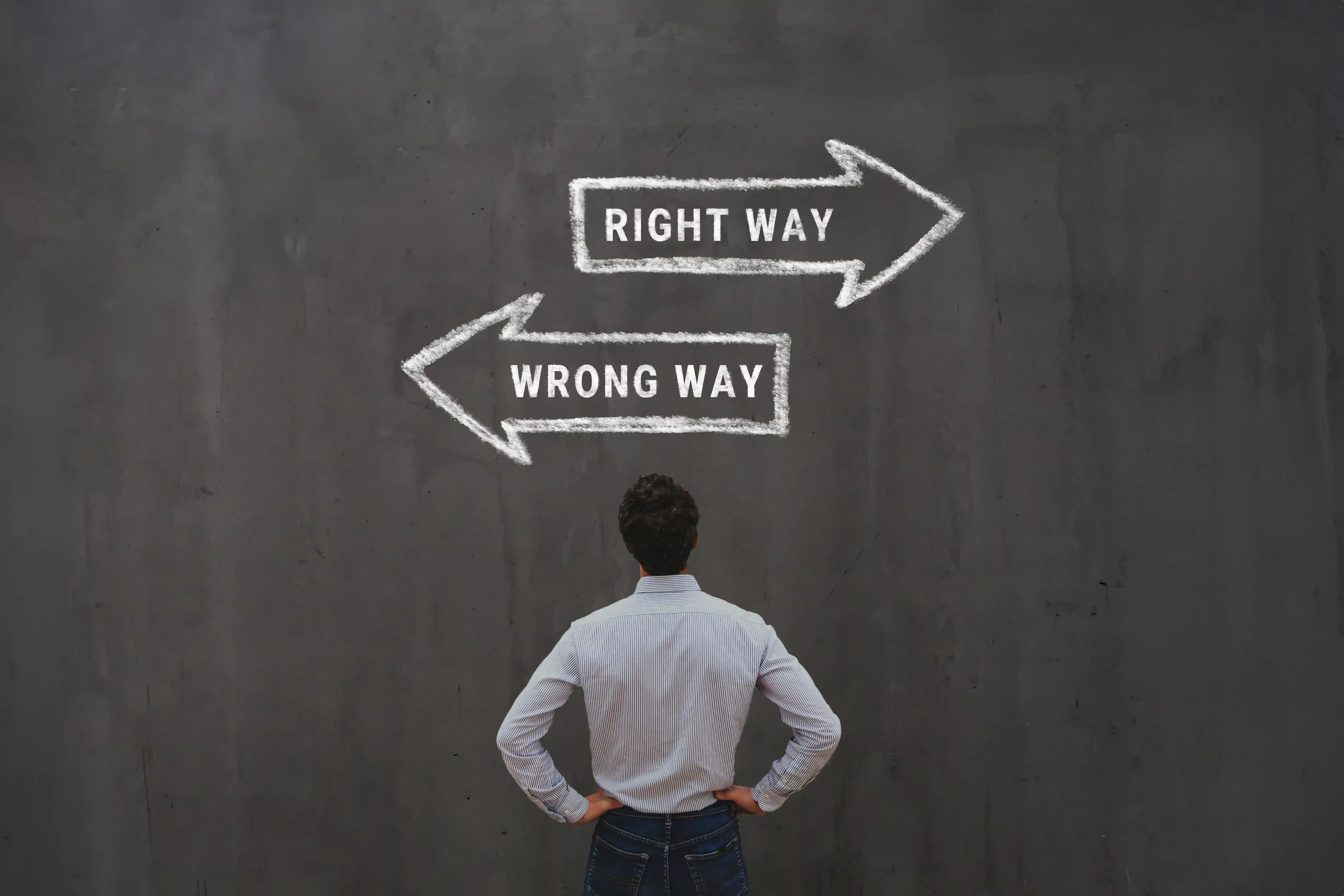How Mental Shortcuts Affect Decision-Making

Have you ever made a quick decision just to question whether it was the correct one? We all do. These decisions frequently occur because our brains rely on mental shortcuts. They help us absorb information and make better decisions. While these can be helpful, they also come with risks.
Mental shortcuts play a big role in decision-making. They influence how we assess options, judge situations, and ultimately decide on a course of action. These shortcuts can be useful when time is limited or the decision isn’t very complex.
What Are Mental Shortcuts?
Mental shortcuts are the quick, automatic ways our brains make decisions based on their knowledge. They help us see what's important right now through all the noise. We don't look at everything; instead, we use patterns, past events, or simple rules of thumb to help us decide what to do.
The Different Types of Mental Shortcuts
There are some differences between them, but they all do the same thing: They help us make quick decisions when we're processing a lot of data, lacking time, or in the middle of a crisis.
Availability Heuristic
Availability heuristic is a mental shortcut that relies on how easily something comes to mind.
Representativeness Heuristic
Representativeness heuristic is a mental shortcut in which we judge a situation or person based on how similar it is to something we already know.
Anchoring Bias
Anchoring Bias is a mental shortcut that involves clinging to the first piece of information we come across—often without realising it.
The Pros and Cons of Using Mental Shortcuts
Mental shortcuts have advantages and disadvantages; understanding both sides can help us use them more effectively.
Advantages
-
Speed
They allow us to make decisions quickly, especially when time is limited.
-
Efficiency
Shortcuts help us conserve energy for other tasks or decisions by reducing the mental effort needed to process information.
Disadvantages
-
Inaccuracy
They might cause us to make systematic errors or jump to conclusions that don’t reflect reality.
-
Over-simplification
While shortcuts save time, they can often miss important details or the complexities of a situation, resulting in less well-rounded decisions.
Recognising these advantages and disadvantages helps us decide when to rely on mental shortcuts and when to evaluate a problem thoroughly. A life coach can assist in this process by helping us identify patterns, reflect on our choices, and weigh the pros and cons, ensuring we strike the right balance for better decision-making.
How Mental Shortcuts Influence Good vs. Bad Decision-Making
Depending on how we apply mental shortcuts, we can either make good or bad decisions. These heuristics can, on the one hand, save time and enable us to make fast, sensible decisions. However, mental shortcuts may also cause us to ignore important information or depend on limited or biased knowledge, leading to decisions that do not turn out as well as we’d hoped.
Being aware is important for using mental tools well. Once we know how they work, we can step back and see if they're helping or holding us back. Balancing speed and thought with practice becomes easier, which helps us make more fruitful decisions.
Tips for Improving Decision-Making Skills
Being more mindful about how you make choices is the first step to getting better at making decisions. It's a balance between moving fast and giving things some thought. These tips should help:
- Take a step back and look at what's going on.
- Before you decide, make sure you know the most important facts.
- Check if you rely too much on past events, biases, or stereotypes.
- Think about possible scenarios or consequences of your choice.
- Evaluate the choices you've made in the past, the good and the bad.
It takes time to improve your decision-making skills. Being aware of the process makes it easier to make sound and good decisions.
Balancing Efficiency with Rationality
Every day, we’re presented with a series of choices, and mental shortcuts are a natural part of our decision-making process. To make quick decisions and ensure favourable outcomes, we must learn to apply mental shortcuts strategically and consciously, knowing when they are beneficial and when they may lead us to the wrong path. We can make better decisions if we are aware of our thought patterns and intentional about our choices.
Finding the perfect balance between quick thought and careful consideration is not always simple, but it is an ability worth developing. With patience and knowledge, we may make decisions that feel right in the moment and benefit us in the long run.
- January 2025
- December 2024
- November 2024
- October 2024
- September 2024
- August 2024
- July 2024
- June 2024
- May 2024
- December 2023
- November 2023
- August 2023
- July 2023
- June 2023
- May 2023
- April 2023
- March 2023
- February 2023
- January 2023
- December 2022
- November 2022
- October 2022
- September 2022
- August 2022
- July 2022
- June 2022
- May 2022
- April 2022
- March 2022
- February 2022
- January 2022
- December 2021
- November 2021
- October 2021
- September 2021
- August 2021
- July 2021
- June 2021
- May 2021
- April 2021
- March 2020
- February 2020
- January 2020
- December 2019
- November 2019
- October 2019
- September 2019
- August 2019
- July 2019
- June 2019
- May 2019
- April 2019
- March 2019
- February 2019
- January 2019
- December 2018
- November 2018
- October 2018
- September 2018
- August 2018
- July 2015
- May 2014






